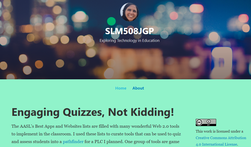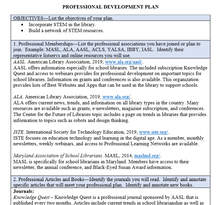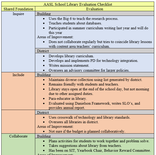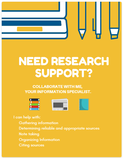Standard 4: Advocacy and Leadership
Candidates advocate for dynamic school library programs and positive learning environments that focus on student learning and achievement by collaborating and connecting with teachers, administrators, librarians, and the community. Candidates are committed to continuous learning and professional growth and lead professional development activities for other educators. Candidates provide leadership by articulating ways in which school libraries contribute to student achievement.





